When Jason Kenney’s government quietly abolished the province’s visionary Coal Policy last May to appease Australian coal miners, a shock wave travelled through cowboy country along the scenic slopes of the southern Rockies.
One of those waves arrived at the doorstep of the Rocking P Ranch owned by Mac and Renie Blades.
Another hit the nearby Plateau Cattle Co. owned by John Smith and Laura Laing.
Both families graze their cattle at the base of a fir-topped mountain called Cabin Ridge during the summer months.
Under the province’s 44-year-old Coal Policy the picturesque mountain lay within a landscape known as Category 2. That classification forbade open-pit mining and thereby conserved a precious watershed in arid Alberta.
But in one fell swoop the Kenney government ended that protection by killing the policy and most of its land classification system.
As a consequence the province abruptly opened up 1.5 million hectares of the southern Rockies to mountaintop removal in the middle of the Oldman River watershed, which supplies drinking water to more than a million Canadians. The government is now taking bids for some of that area until Dec. 15.
Australian leaders of coal mining corporations, who had lobbied for the abolishment of the Coal Policy, openly praised the government when their wish was granted.
“We welcome the decision of the Alberta government to repeal the now heavily outdated 1976 Coal Policy. It is a big step forward for the targeted progression and future development of our flagship Elan hard-coking coal project,” said Atrum CEO Andrew Caruso.
The Blades and Smith and Laing were dumbfounded.
Now they hope to stop the Kenney government dead in its tracks with an application for a judicial review slated to be heard in the Court of Queen’s Bench in mid-January.
In what the two long-time ranching families say is a fight for their livelihoods and clean water, they contend that the Kenney government broke the law by rescinding the Coal Policy without public consultation.
They say the issues are fundamental to the survival of Alberta’s iconic ranching community.
“If you don’t have water, you don’t have anything,” Mac Blades told the Tyee.
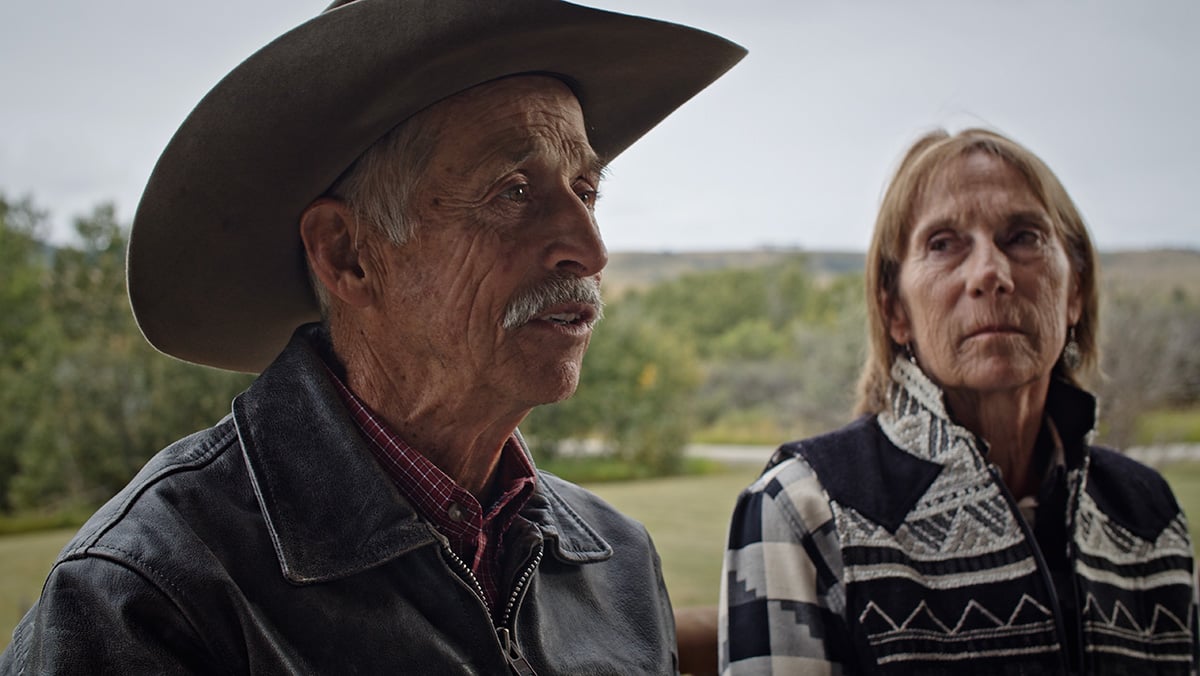
Generations of the Blades family have grazed cattle in the Livingstone Range southwest of Calgary since 1921.
Mac Blades’ own ranch, which includes 100 horses, sits at the north end of the Porcupine Hills in the municipal district of Ranchland, where almost every ratepayer runs cattle.
Ranchland straddles Highway 22 or the famous Cowboy Trail and boasts some of Alberta’s most historic, scenic and undisturbed landscapes.
“I knew there was coal companies sniffing around,” Mac Blades told the Tyee, “but the rescindment was kind of a shock. It is not possible to reclaim a mountain. There is just no way you can put the mountain back the way it was.”
His wife, Renie, who grew up near the headwaters of Oldman, is just as adamant. “The fact that they rescinded the Coal Policy in Alberta without any consultation whatsoever to me didn't give the citizens of Alberta a fair chance to discuss whether they thought it was a good idea. It was just dumped on us.”
The government made the abrupt announcement last May on a Friday afternoon, claiming the move was all about “modernization.”
Now John Smith and Laura Laing, who are married, say a judicial review is their only recourse for justice at the moment.
“We hope to restore the Coal Policy and protect the slopes of the eastern Rocky Mountains,” Laura Laing told the Tyee. “We don’t need open-pit mines for our economy. We just don’t need that kind of destruction.”
She also hopes the legal action will draw more attention to what the Kenney government is doing to support foreign coal speculators. “Nine out of 10 Albertans have no idea the government rescinded the Coal Policy.”
The Alberta government is hungry for cash during an oil bust. Still, Smith thinks it’s dangerously shortsighted for the United Conservative Party government to be courting Australian coal companies at the expense of Canada’s finest ranching country in the Oldman River watershed.
“I think they are grasping for straws," said Smith. “I worked in the oil patch. There is a big difference between drilling a six inch hole in the ground and blasting the top off a mountain.”
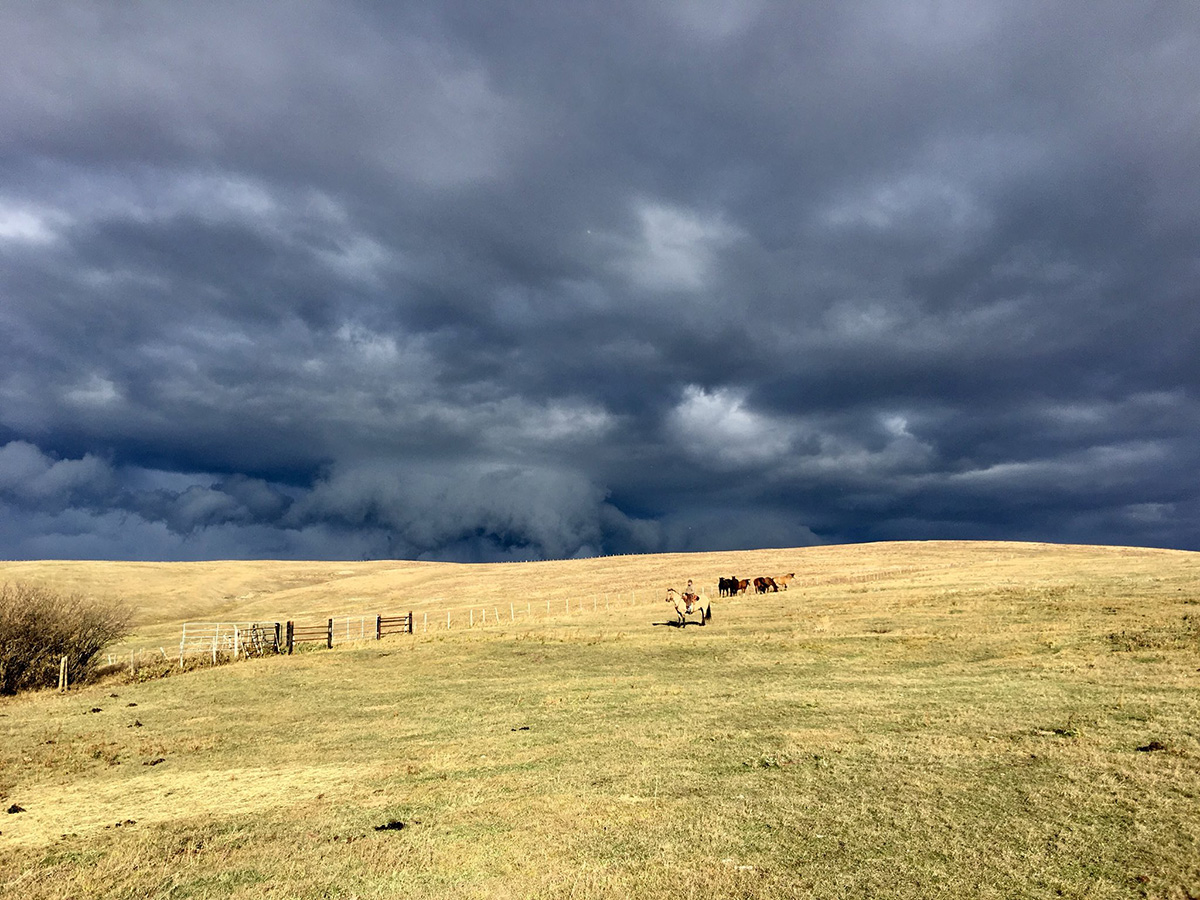
Much is at stake in this David and Goliath battle in Alberta’s world famous foothills.
Since the fall of 2019 the pro-coal Kenney government has provided letters of support to Australian speculators; delisted provincial parks in coal mining areas; offered one per cent royalties; lowered corporate taxes; reduced regulatory process requirements; abolished the Coal Policy; passed legislation to speed up project approvals and is now changing water allocations in the driest part of Alberta to accommodate coal projects.
The government has also proposed to change grazing leases in the foothills from multi-year agreements to yearly permits. That change would make it easier for miners or oil and gas developers to gain access to land but destroy ranches highly dependent on the grazing of crown leases.
Open-pit coal mines not only consume enormous volumes of water but pollute waterways with selenium and other toxic metals for hundreds of years. Persistent pollution from Teck’s steel coal mines in B.C., for example, have killed thousands of fish and migratory birds and contaminated U.S. waterways.
In Australia farmers and ranchers have documented the industry’s dirty environmental impacts, including its bust and boom character — the mines open and close depending on global prices. In Australia, the coal industry also has left local economies impoverished with a legacy of health and water issues.
Bob Sandford, a Canmore-based water expert and author, thinks that by backing Australian coal miners the government is not reinventing itself but repeating the same mistakes it made by overdeveloping the oilsands.
“By rescinding the Coal Policy in Alberta, what we're effectively doing is throwing out water security in the Canadian West, not just for ourselves, but for those downstream, and we're doing that not just for a few generations, but for centuries,” said Sandford, who holds a chair in water and climate security at the United Nations University Institute for Water, Environment and Health.
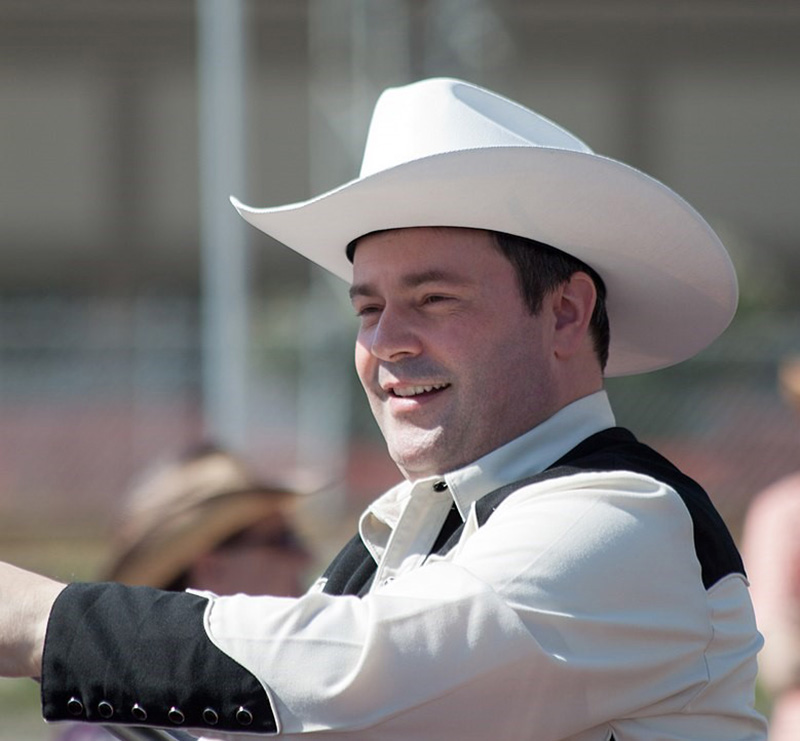
Alberta’s premier has never made a secret of his support for mining and burning more coal in the province. “Jason digs coal,” proclaimed his Facebook page as he campaigned for leader of Alberta’s Progressive Conservative party in 2017. Now that his government is aggressively courting new open-pit mining, opposition along the southern slopes of Alberta’s Rockies includes beef producers and the Lethbridge city council.*
In a recent letter to the government the council warned that proposed coal mining projects could affect water quality in the entire Oldman River watershed, adding that thousands of agricultural jobs could be damaged by selenium and other toxic pollution.
The proposed coal mines have some local support. “This community is in desperate need of industry,” said Blair Painter, mayor of nearby Crowsnest Pass, in a 2019 letter.
But many Alberta lawyers predicted that the abrupt abolishment of the Coal Policy could lead to legal challenges.
“It appears that the Coal Policy was rescinded to spur coal exploration and development in Alberta,” noted Gavin Fitch in a legal blog last summer.
Fitch warned that eliminating Category 2 classifications with no replacement planning regime “may have unintended consequences.”
One consequence is the request for a judicial review filed by the ranchers. Their application argues that the government “made errors of law” and “mixed law and fact,” and “failed to accord the applicants with procedural fairness.”
The South Saskatchewan Regional Plan, which governs land-use decision-making in much of Alberta’s southern Rockies since 2014, specifically states that the Coal Policy land categories were to remain in place subject to an open government review. Those four categories banned or severely restricted coal development along the eastern slopes in order to protect water and wildlife for future generations.
Moreover Section 5 of the Alberta Land Stewardship Act states that before a regional plan such as the SSRP can be changed, the government must ensure that appropriate public consultation has been carried out.
In addition a report on that public consultation must be provided to the provincial government’s executive council and tabled before the legislative assembly.
None of that happened when Kenney’s government killed the Coal Policy, say the ranchers and lawyers.
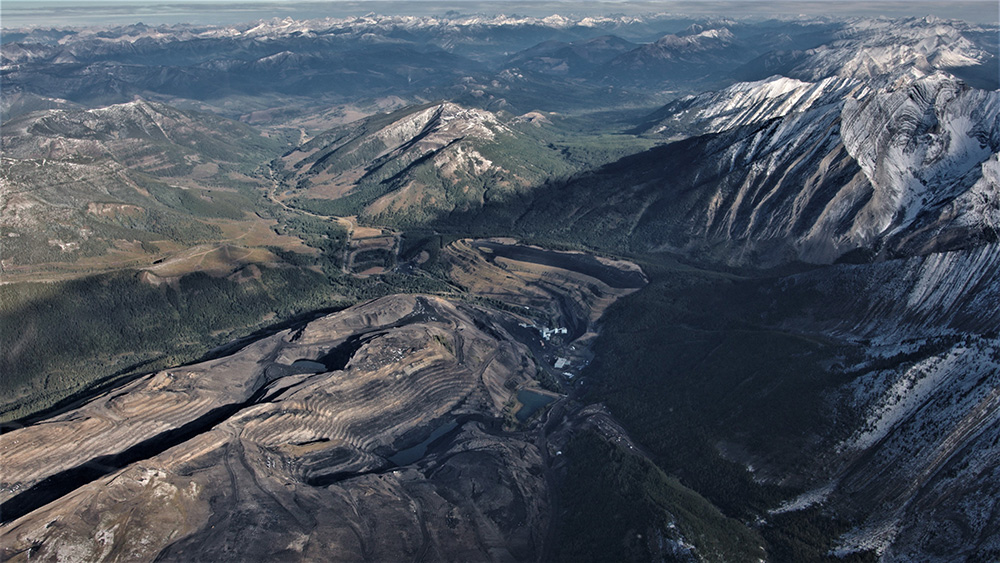
Four Australian mine developers including right-wing billionaire Gina Rinehart have plans to industrialize nearly 800 square kilometres of the southern Rockies with mountaintop removal. They plan to export the steel-making coal to Asian markets via Vancouver ports.
David Luff, a former assistant deputy minister who helped craft the landmark Coal Policy, thinks the judicial review just might throw a monkey wrench in the government’s plans to open up the Rocky Mountains to foreign coal miners.
“The rescindment of the Coal Policy has been ethically and morally wrong,” said Luff. “I believe the judicial review process will determine the rescindment of the Coal Policy is legally wrong.”
He noted that the Kenney government didn’t talk to anyone about abolishing the Coal Policy other than the Coal Association of Canada and Australian coal companies. The Coal Association of Canada, directed by a former Alberta Tory politician, has been lobbying for the removal of the policy for two years.
Luff hopes the courts will force the government to consult with Albertans about the future of the Rockies. “What makes this legal challenge so important,” he says, “is that it could set the legal requirements for public consultation by the government.”
But this week the province’s Energy Ministry indicated that it had no time for such legal challenges.
In the Court of Queen’s Bench it applied to strike down or dismiss the application for a judicial review on the grounds that the ranchers have no legal grounds to challenge the abolishment of a government policy.
To support its application the government included an “advice” document addressed to Energy Minister Sonya Savage from Micheal Moroskat, director of coal and mineral development for the province.
The March 20 document noted that abolishing the Coal Policy “is expected to increase the province’s attractiveness as an investment destination for coal by expanding the land base that is available for coal leasing, exploration and development.” It would also immediately earn the province annual rental payments of $2.3-million for coal leases.
“The policy shift will be viewed positively by the coal industry,” said Moroskat in the advice document.
But the document also warned that abolishing the policy “could result in policy gaps because several Integrated Resource Plans that remain active within Eastern Slopes rely on the coal categories to establish baseline conditions.”
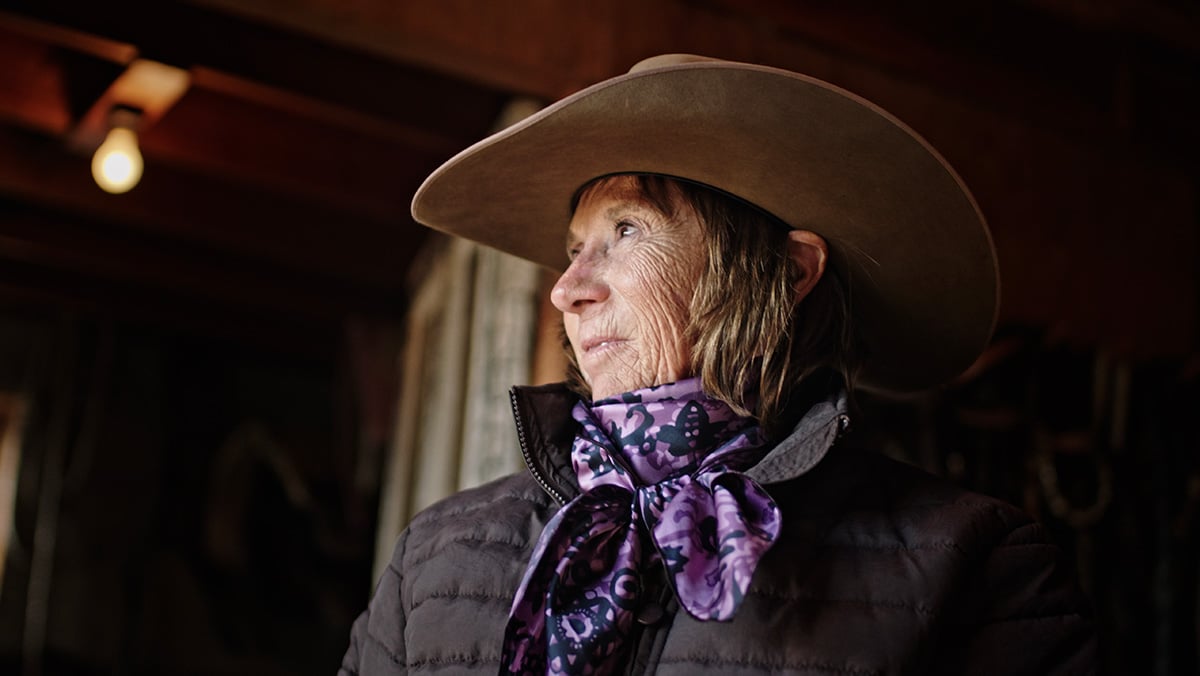
Alberta’s government has plans to abolish other laws that could stand in the way of Australian coal miners.
At its annual convention last October, the United Conservative Party passed a resolution that would further rescind “provincial environmental, laws, regulations and policies” including the Water Act and the South Saskatchewan Regional Plan because “their application have placed undue burden on land development” and “thwarted economic development.”
According to Alberta’s Lobbyist Registry, Benga Mining Ltd., a company owned by Gina Rinehart, has been lobbying the government for changes to “the Water Act and water licenses in southwest Alberta” to support its proposed Grassy Mountain open-pit mine in Blairmore, Alberta. That project is now under federal review.
Benga Mining officials have said the mine they plan for Alberta would create about 400 full-time jobs when at peak production.
The Alberta government proposes to reallocate scarce water in the Oldman River basin, banked for irrigators and for ecological reasons, to satisfy the demands of Australian coal miners.
The government’s move to strike down the rancher’s application for a judicial review means lawyers representing the Blades and Smiths will have to first prove they have a right to judicial review, before the courts can award them one.
But Renie Blades remains optimistic. “Everyone agrees that if we can win our right to be in court, then we will win in court,” said the 70-year-old grandmother and horsewoman.
“This government only wants fossil fuels and they want them to return. But I think that ship has sailed,” she added.
The rancher still can’t understand why the government views mountaintop removal as a positive development in any shape or form.
She explained that whenever open-pit mines or mountaintop removal have entered a rural area, “Everything else leaves.”
“So you've then got a monoculture. You have coal mining. But this is Ranchland municipality. It's called Ranchland because the major industry here is ranching. It has been here for more than 100 years. And it can go on for 100 years. It's sustainable. It enhances the community and it enhances Alberta,” Renie Blades explained.
“And we believe it's our duty to leave it better than we receive it. And I'll guarantee you, if we let coal mining in our eastern slopes and remove our mountains, we're not going to leave it better.”
[Editor’s note: Andrew Nikiforuk owns land in the foothills of southern Alberta near proposed coal mining sites.]
*Story corrected on Dec. 10 at 2:12 p.m. An earlier version of this story mistakenly stated Alberta Beef Producers oppose open-pit coal mining in the newly opened areas along the southern slopes of Alberta’s Rockies. In fact, the Albert Beef Producers have taken no position. ![]()
Read more: Energy, Politics, Environment



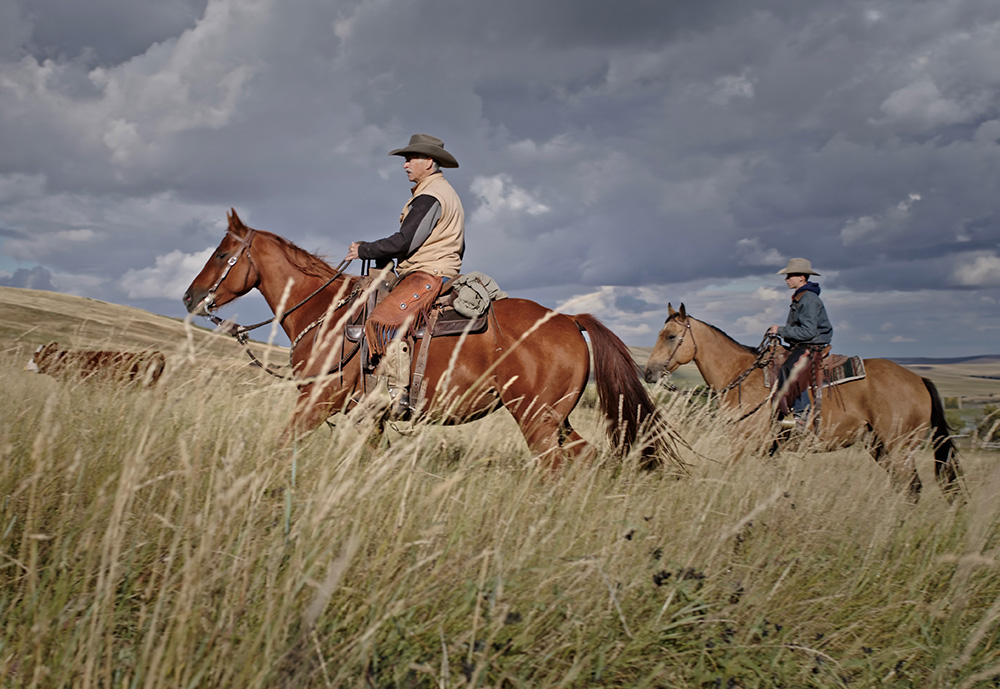












Tyee Commenting Guidelines
Comments that violate guidelines risk being deleted, and violations may result in a temporary or permanent user ban. Maintain the spirit of good conversation to stay in the discussion.
*Please note The Tyee is not a forum for spreading misinformation about COVID-19, denying its existence or minimizing its risk to public health.
Do:
Do not: